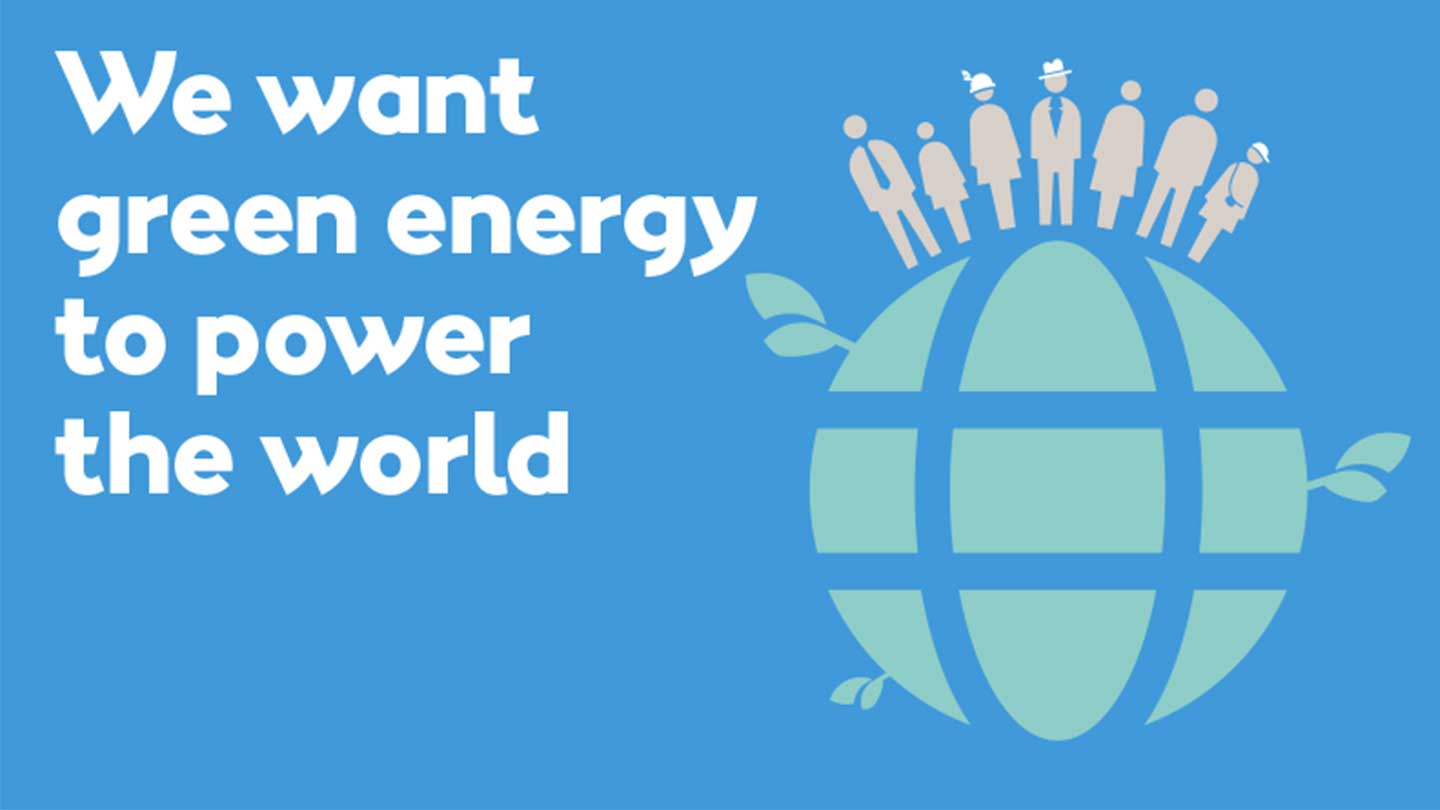
New survey shows strong global support for green energy
Ørsted launches world’s largest survey of attitudes towards renewable energy

Ørsted launches world’s largest survey of attitudes towards renewable energy

Coal and oil are still the world’s main energy sources, but there’s massive public support for a green future. According to a new survey, people across all ages, political standpoints, education and geographies are in favour of a shift to green energy.
The backing for green energy is clear. In the largest survey of attitudes towards green energy ever conducted, 82% of people favour a world being fully powered by green energy. The support comes from all surveyed age groups, educational backgrounds and countries. The survey also revealed strong support across all political viewpoints. The Green Energy Barometer, conducted by Edelman Intelligence, is based on interviews with more than 26,000 people across 13 countries.
And there’s every reason to go full speed ahead, says Henrik Poulsen, CEO of Ørsted:
“We’re at a tipping point. Green energy has become cheaper than black, and the newly released Green Energy Barometer shows overwhelming public support for a shift from black to green. We owe it to the planet and to future generations to transform our energy systems from black to green. And with the economics and public opinion now supporting a shift to renewable energy, there’s no reason not to speed up the transformation.”
U.K. in support
The survey shows that in the U.K., the support for a shift to renewable energy mirrors the global average at 82%.
“Our vision is to help create a world that runs entirely on green energy, and this survey reveals that this ambition has overwhelming support, irrespective of age, nationality and political viewpoint. There is a pressing need to take green action and it is encouraging to see we are united in this goal. Renewable energy is green, independent and economically viable and, as demonstrated by the Green Energy Barometer, has public support from all demographics in the U.K. The barriers have been removed; green energy is now cheaper than black, so we are in a better position than ever to take action against climate change,” says Matthew Wright, Managing Director of Ørsted UK.
Growth and job creation
Concern about climate change is a major driver of support of green energy, however, backing for renewables is also heavily rooted in a range of economic and societal benefits. More than seven in ten of those surveyed believe that it will boost economic growth and create new jobs if their respective countries were to build and produce more green energy.
An energy company taking action
The survey is released by the energy company Ørsted, headquartered in Denmark. Over the past ten years, the company has transformed from one of the most coal and oil-intensive European utilities to the greenest energy company in Europe. By deciding to stop using coal, selling its oil and gas production and building the world’s largest offshore wind business, the company is today dedicated to green energy. During the last six years, Ørsted has helped reduce the cost of offshore wind power by 63% and by 2023, it will have reduced its carbon emissions by 96% compared to 2006.
Download the full Green Energy Barometer here: orsted.com/barometer
And join the conversation on social media: #takegreenaction
Media contacts
Juliette Sanders, UK Media Relations Manager
Email: julsa@orsted.com
Tel.: +44 20 7811 1181 / +44 7876 866 284
Notes to Editors
Research was completed on behalf of Ørsted by Edelman Intelligence, a global insights and consultancy firm. Online interviews were conducted with controlled sample to ensure a nationally representative sample of the online population in each country surveyed. The respondents were segmented according to age, gender, country and income.
In total 26,401 interviews were conducted in 13 markets (Canada, China, Denmark, France, Germany, Japan, the Netherlands, Poland, South Korea, Sweden, Taiwan, Great Britain and the USA). More than 2,000 interviews were conducted in each country, and data collection was carried out from 28 July–1 September 2017.